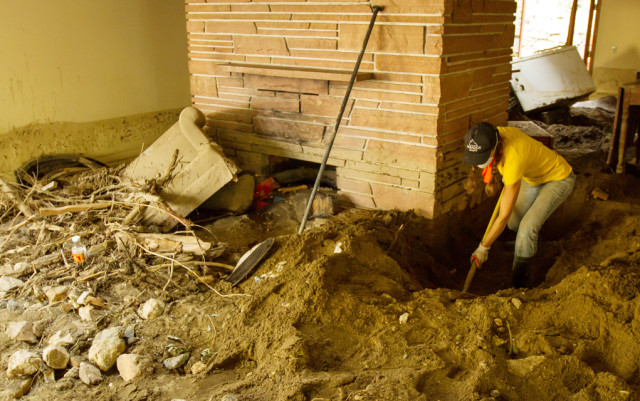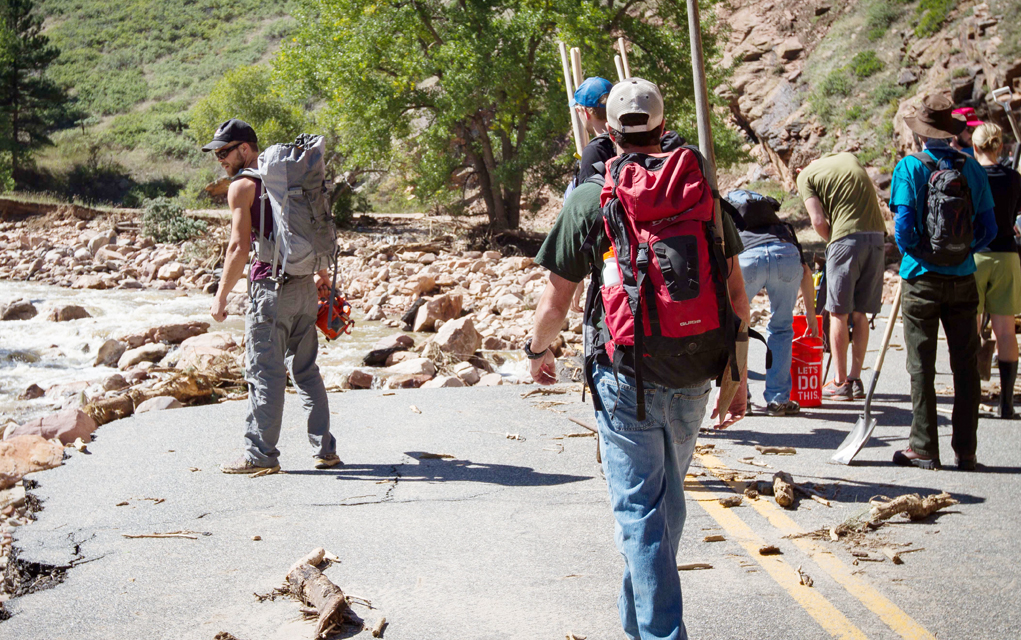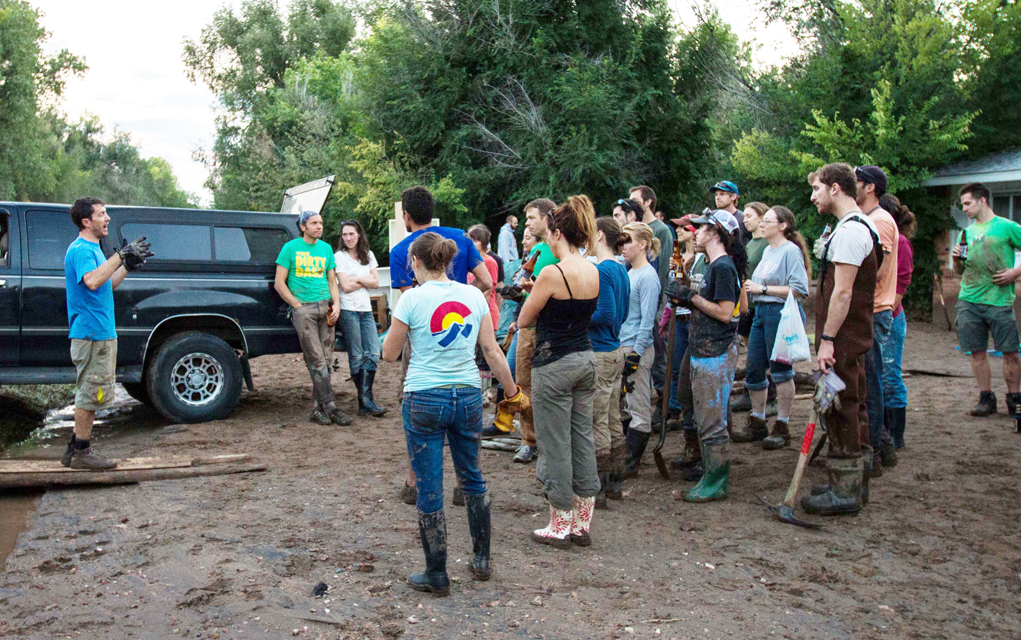
When filmmaker Aly Nicklas watched the rising waters of the Boulder flood in 2013 wash away the homes of her friends, she needed to help in any way she could. The only question was, how?
Embarking upon a series of extraordinary events, Nicklas spontaneously coordinated a posse of enthusiastic volunteers that devoted massive amounts of assistance to flood victims even as Boulder Creek still surged down the canyon. From Boulder and beyond, volunteers showed up in the months after the flood to dig out more than 350 debris-filled houses in Boulder County, eventually earning them the title “the Mudslingers.”
Nicklas, whose previous films include Coming Home and The Starhouse, chronicled the experiences of the Mudslingers in Knee Deep, a short film about lessons learned from the community’s adversity. With successes spanning from Telluride to a United Nations film festival, Knee Deep will receive hometown treatment in REEL Women: Showcase of Films Directed by Women and the Boulder International Film Fest.
For longtime Boulder residents like Nicklas, the events of September 2013 were traumatic. She watched as inches of rain swelled Boulder Creek to levels undocumented since the 1890s, and what she didn’t see firsthand was brought by local news: up to 1,000 homes and businesses destroyed and four dead in what was being called a “hundred-year flood.”
“[Flood victims] had lost everything, and I was inspired,” she says. “It was a difficult experience seeing people’s lives ripped apart in such a tangible way.”

With the rain still pouring down, she knew something had to be done as road closures were still preventing large-scale flood relief from reaching victims in the mountain towns of Jamestown and Salina. Utilizing Facebook, Nicklas formed the Mudslingers, a group open to any volunteer who wanted to help flood victims. With little experience in running an organization, and limited ways to connect with the community, she didn’t expect the significant volunteer turnout that ensued.
With flood victims facing daunting cleanup efforts alone, it was decided that energies would be directed toward debris removal in mountain towns, where the wreckage appeared the worst, as well as Boulder and Longmont.
“It happened very organically,” says Nicklas. “We just wanted to help people get mud out of their houses.”
Lack of road access made setting out for towns like Salina a strenuous task and Nicklas admits that she was unprepared for a face-to-face encounter with the situations of these communities.
“I believe we were one of the first flood relief groups in Salina and Jamestown,” Nicklas says, “and I knew that it was a really traumatic experience, but being there, the energy up there was so intense right after the flood. … I’d never been in a landscape that had been so drastically altered so quickly.”
Digging for weeks on end, Nicklas estimates more than 20,000 volunteer hours contributed to relief efforts. The nature of the work, which Nicklas describes as “mostly manual labor,” couldn’t stop Mudslingers from enjoying their work and bringing great attitudes to heart-breaking situations.
Weeks into the frantic campaign, when things had calmed down a little bit, Nicklas began to document bits and pieces of the relief efforts, at first without any intention to turn the footage into a film.
“I was inspired to document, because what I saw was pretty awesome — a community showing up to help each other,” she says.
And her footage doesn’t focus on the flood itself. Rather, it captures the human response to disaster, while communicating newfound convictions about what it means to live in community — themes that are central to Knee Deep.
“The film is not about the flood at all,” she says. “The flood is about community. The flood was a catalyst for community to come together — that’s what communities do.”

As damage from the hundred-year flood continues to be repaired to this day, it is clear that the Mudslingers — despite all their zeal — weren’t able to rectify all the effects of the raging waters. Many homes, possessions and even lives were simply washed away. But digging wasn’t the Mudslingers’ only goal, Nicklas believes.
“One of the coolest things that we were able to do was to show up for people when they felt like it was more than they could handle,” she says. “So we’d show up with this group of strangers and be like, ‘You’re not alone, and your community is here.’ That, I think, is the most valuable thing we gave.”
Knee Deep and the story of the Mudslingers are emblematic of community action at its best, constituting a proud chapter of Boulder history with lessons for the future. When there is nowhere left to turn to but each other, the latent power of a community, they show us, is not to be underestimated.
On the Bill: Knee Deep. 7 p.m. Thursday, March 3, Boulder Center for Conscious Community, 1637 28th St., Boulder. 303-938-9191. 12:30 p.m. Sunday, March 6, Boulder High School, 604 Arapahoe Ave., Boulder, 303-786-7030. $10.














